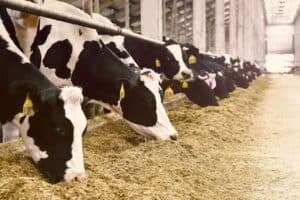Zimbabweans, of all political loyalties, are desperate to recover from the disasters of land seizures, hyperinflation, and international sanctions.

On the face of it, Zimbabwe’s general election on Monday is the best chance yet of victory for the opponents of the Zanu-PF government that has ruled since independence in 1980. Don’t get your hopes up, though.
Sure, Zanu-PF is weak. For the first time, Robert Mugabe, the former liberation struggle hero turned tyrant, will not be the shoo-in for president. Instead, it is Emmerson Mnangagwa, Mugabe’s former close comrade and the man who ousted him in last November’s coup, who carries Zanu-PF’s hopes.
Sure, the country is a mess and groaning for relief, with Zimbabweans, of all political hues, desperate to recover from the disasters of land seizures, hyperinflation, and international sanctions. They will have to do it without the assistance of South Africa.
In 2002, 2005 and 2008 the election was stolen. In 2008, Mugabe won with the direct complicity of Thabo Mbeki’s government, which stood mute as Zanu-PF thugs and the military killed hundreds of opposition supporters and terrorised thousands more.
With the “honest broker” credentials of SA rather frayed, Zimbabweans have sought support for a free and fair electoral process across a broader front. For the first time since 2002, the election has been monitored by international observers, from the EU, the US, the Southern African Development Community, the AU and the Commonwealth, which Mnangagwa’s government wants to rejoin.
Arguably, the greatest value of the observer missions lies in their symbolic significance. To rise from the morass it is in, Zimbabwe needs to shed its international pariah status and, to do so, it needs that “free and fair” ratification.
Allowing monitors is an implicit promise by Zanu-PF that the electoral process will not be rigged, at least not egregiously so. At the same time, their presence has provided a protected space for the opposition parties to operate in.
For the first time in decades, the opposition has been able to campaign freely in the rural areas that comprise the Zanu-PF heartland.
There are 23 presidential candidates, most of whom are from a splintered opposition unable to unite behind a single candidate. But there are also Joice Mujuru, Mugabe’s former deputy, Nkosana Moyo, a former Cabinet minister, and Violet Mariyacha, a businessperson returned after 25 years in the United Kingdom to become the self-proclaimed “new face” of Zimbabwean politics.
The ideological chasm between two major contenders has narrowed. The pro-business, pro-investment policies espoused by the MDC-T, headed by 40-year-old Nelson Chamisa, have now been embraced by Mnangagwa’s version of Zanu-PF.
One thus has the rather implausible situation that the 75-year-old Mnangagwa has rather implausibly positioned himself as the candidate of choice for democratic renewal and the eradication of corruption. Equally implausibly, Mnangagwa’s strategy may well succeed.
Most Zimbabweans probably care more about whether the election delivers a democratic government — a break from the blighted past that will reopen Western investment and aid conduits that were shut by sanctions – than they care what particular party colours it wears.
William Saunderson-Meyer.
For more news your way, download The Citizen’s app for iOS and Android.






